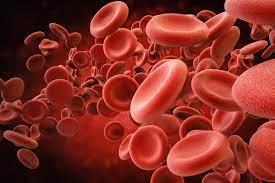J. Clin. Med. 2021, 10, 2064
There have apparently never been any prospective clinical trials conducted in the setting of CLL-associated AIHA, as patients with uncontrolled AICs are typically excluded from trials. This paper looks at the role of novel agents in treating AIHA and suggests that BTKi's are most suited because of their immune modulation effects.
When doctors are considering treatment, the acuteness of onset, the severity of anemia and the degree of hemolysis must be taken into account, together with patient’s symptoms, age and co-morbidities. Blood transfusions are usually indicated with Hb < 6 g/dL or higher in elderly comorbid patients but over-transfusion should be avoided since it carries a high risk of allo-immunization where the patient makes antibodies to the transfused blood. Isolated AIHA is not a criterion to treat CLL, patients in A stage should not receive CLL directed treatment.
In Conclusion
"Small molecule inhibitors are able to exert excellent disease control in CLL and this activity on disease burden is usually able to extinguish the autoimmune dysfunction that is responsible for AIHA and related immune cytopenias.
However, the choice of the right agent seems important as, with very little literature available so far, not all new drugs are able to yield the same efficacy in repressing hemolysis. Because of their ability to produce a deep change in the cytokine asset that is (at least partly) responsible for autoimmunity in CLL, to date BTK-inhibitors stand out as the most suitable choice.
In the near future, clinical studies employing BTK-inhibitors as treatments for CLL- related AICs will manage to cast new light on their potential role as an earlier therapy line
This is the abstract link but you can download the full PDF from this page: mdpi.com/2077-0383/10/10/2064
Jackie
